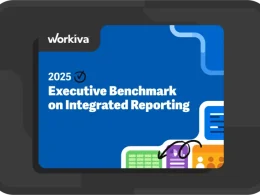Almost half of UK businesses have reduced or postponed environmental and social initiatives over the past year as cost pressures push sustainability down the corporate agenda, according to new research by Sapio Research for Ivalua.
The survey, conducted in Q2 2025 and published on 20 November, gathered responses from 300 procurement and supply chain decision-makers. It found that 41% of companies had scaled back environmental initiatives, while 33% had reduced supplier due diligence checks on issues such as labour standards and carbon emissions.
Cost-cutting has become a heightened priority for 73% of organisations over the past 12 months. However, 68% warned that a narrow, short-term focus on reducing costs could ultimately harm long-term operational resilience.
Analysts note that deprioritising ESG commitments carries significant regulatory and reputational risks, particularly as the UK introduces Sustainability Disclosure Requirements (SDR). Similar rules are being rolled out across the EU, affecting larger firms operating in the bloc.
“After years of uncertainty, businesses will naturally look to slash costs, but they must do so sustainably,” said Ian Thompson, Ivalua’s Vice President for Northern Europe.
Cost pressures are also reshaping supplier relationships. While 61% of businesses said cost-saving drives had led to closer cooperation with suppliers, the strain is evident:
- one-third reported key suppliers going out of business;
- one-quarter said they had lost “customer of choice” status;
- one-fifth experienced damaged supplier relationships;
- and 19% saw suppliers terminate contracts altogether.
More than half of respondents fear that some critical suppliers may not survive ongoing financial pressures.
To manage rising costs, firms are turning to structured procurement strategies. These include collaborating with suppliers to reduce production costs (52%), using bulk purchase discounts (45%), and adopting early-payment schemes (32%).
However, experts warn that UK businesses must avoid short-term decisions that compromise resilience, ESG obligations, or regulatory compliance.
“Procurement has a central role to play by treating suppliers as peers,” Thompson added. “With sharper visibility across spend and suppliers, businesses can secure savings without weakening supply chains or lowering ESG standards. Rather than aggressive cuts that risk reputational damage or supplier disengagement, firms must make strategic decisions that strengthen the supplier relationships that underpin long-term growth.”
















